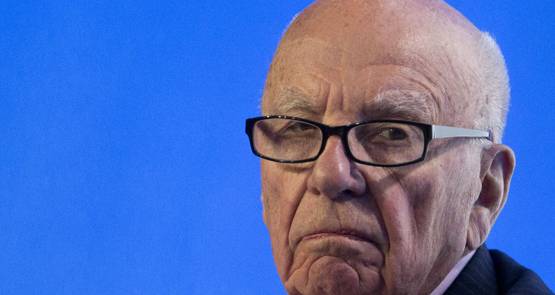
Bunnings grows, Woolies loses home improvement. As Wesfarmers was this morning revealing more detail on its plans to export Bunnings to the Poms by buying UK do-it-yourself retailer Homebase for $705 million, rival Woolworths was revealing that it had been forced to buy its US partner out of their loss-making home improvement business, Masters, and raised that the hardware experiment would be ended this year in a flood of red ink and huge losses. Wesfarmers’ update (the deal was first revealed late last week) was upbeat and a sign that the Australasian market is now too small for the monster that Bunnings has now become. Woolies’ news was sort of expected (but not quite now) but US partner Lowes (America’s second biggest home improvement group) has obviously tired of the losses and lack of headway at Masters and had told its partner it wanted out.
The closure (and what about the hardware supply operations of Danks and Home Hardware, which are in the joint venture, but separate to Masters and are profitable?) of Masters and other parts of the home improvement business will cost Woolies and its suffering shareholders hundreds of millions dollars, if not more than a billion. And you, dear Crikey readers and taxpayers, will pay for part of these losses through tax write-offs wherever Woolies can find them. And you know, we can’t find a nasty trade unionist or regulator or government to blame for this disaster — it’s all Woolies’ own fault. — Glenn Dyer
Deafening jobs silence. Employment Minister Michaelia Cash is one of the more strident voices in the Turnbull government, asserting that if the unions don’t change, the government will change them. But that’s all hot air and partisan windbagging because the December jobs figures from the Bureau of Statistics last week (which the minister greeted with open arms last Thursday) undermines the assertion that nasty unions, crooked unionists and dodgy dealings are holding back the economy. There were 312,000 new jobs created in 2015, according to the ABS report, with the unemployment rate falling from 6.2% to 5.8% in the same time (and yes, there are those among the galahs who doubt that, with some justification given the patchy record the ABS has with this series in the past couple of years). That was the strongest jobs growth since 2006. And not a change to the Workplace Relations Act, or Fair Work Australia, or any other part of the labour relations structure put in place by the ALP from 2007 to 2013. It’s also a stunning indictment of Cash and her fellow travellers on the workplace reforms bandwagon/boost productivity, especially those wanting penalty rates cuts (retail sales grew 4.1% in 2015, well ahead of inflation at around 1.7%).
The recent failures of retailers Dick Smith and Laura Ashley Australia have nothing to do with unions or penalty rates — just managerial ineptitude and a failure to be able to offer a compelling product to consumers. And for all the moaning and groaning from miners large and small about union aggression and pay demands (especially the likes of BHP and Rio Tinto), the industry’s problems are of the making of boards, management and lazy shareholders, especially big fund managers looking after our superannuation. — Glenn Dyer
This Fox (and News) are not for moving. Times must be very tough at the two key companies in the Murdoch clan’s global media empire — 21st Century Fox and News Corp. Why? Well both have rejected the lure of an estimated US$50 million in inducements to move their headquarters from midtown in New York City down to a new building in the World Trade Centre in Lower Manhattan. Under the previously revealed plan, the two companies would have been the anchor tenants in 2 World Trade Centre, a 99-storey building still to be built. The two companies had a signed to lease 1.3 million square feet in the new building — Fox was going to relocate studios and other TV facilities as well to the new HQ. The deal had been done, “donors” lined up with US$50 billion in tax and other help to grease the relocation for the Murdoch companies, but late last week came shock news of a change of heart.
In a memo to Fox staff on Friday, James and Lachlan Murdoch (CEO and co-chair of Fox respectively, and co chair of News) wrote: “We have concluded that a relocation project of this scope could be distracting in the near-term and, given the scale of investment in a relocation of this size, that our resources would be better directed elsewhere.”
Media reports said the two companies received a better offer to stay put in the Sixth Avenue building they currently occupy. In fact Fox and News Corp have leases at their Sixth Avenue home that run through 2020, with “extension options that could continue our occupancy on Sixth Avenue through 2025”. The most telling phrase in the memo was “given the scale of investment in a relocation of this size” tells us that even the Murdochs realised spending $100 million on the move (most of which would be involved be new facilities for TV etc in the new offices) didn’t justify the new address. — Glenn Dyer







Crikey is committed to hosting lively discussions. Help us keep the conversation useful, interesting and welcoming. We aim to publish comments quickly in the interest of promoting robust conversation, but we’re a small team and we deploy filters to protect against legal risk. Occasionally your comment may be held up while we review, but we’re working as fast as we can to keep the conversation rolling.
The Crikey comment section is members-only content. Please subscribe to leave a comment.
The Crikey comment section is members-only content. Please login to leave a comment.